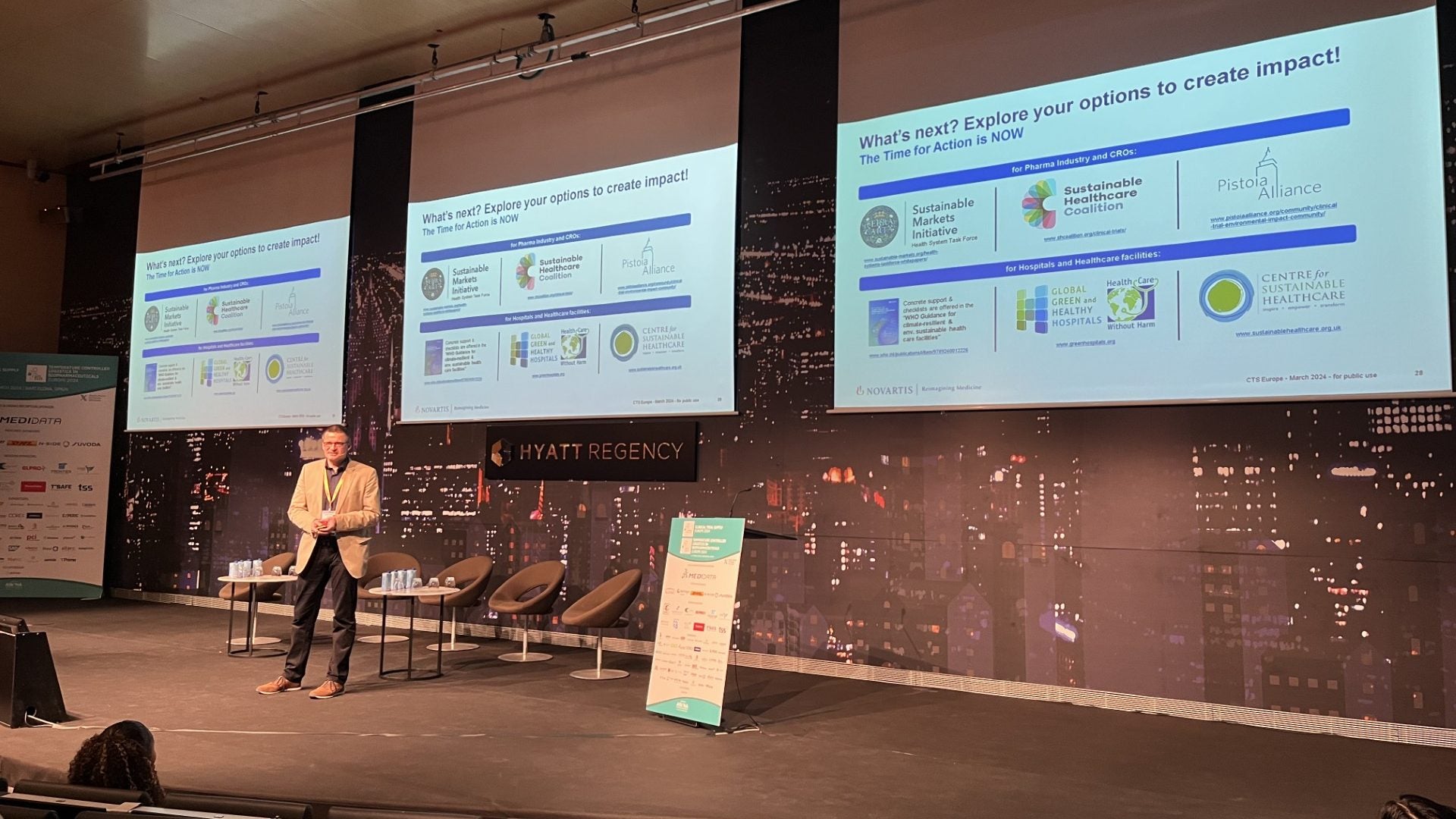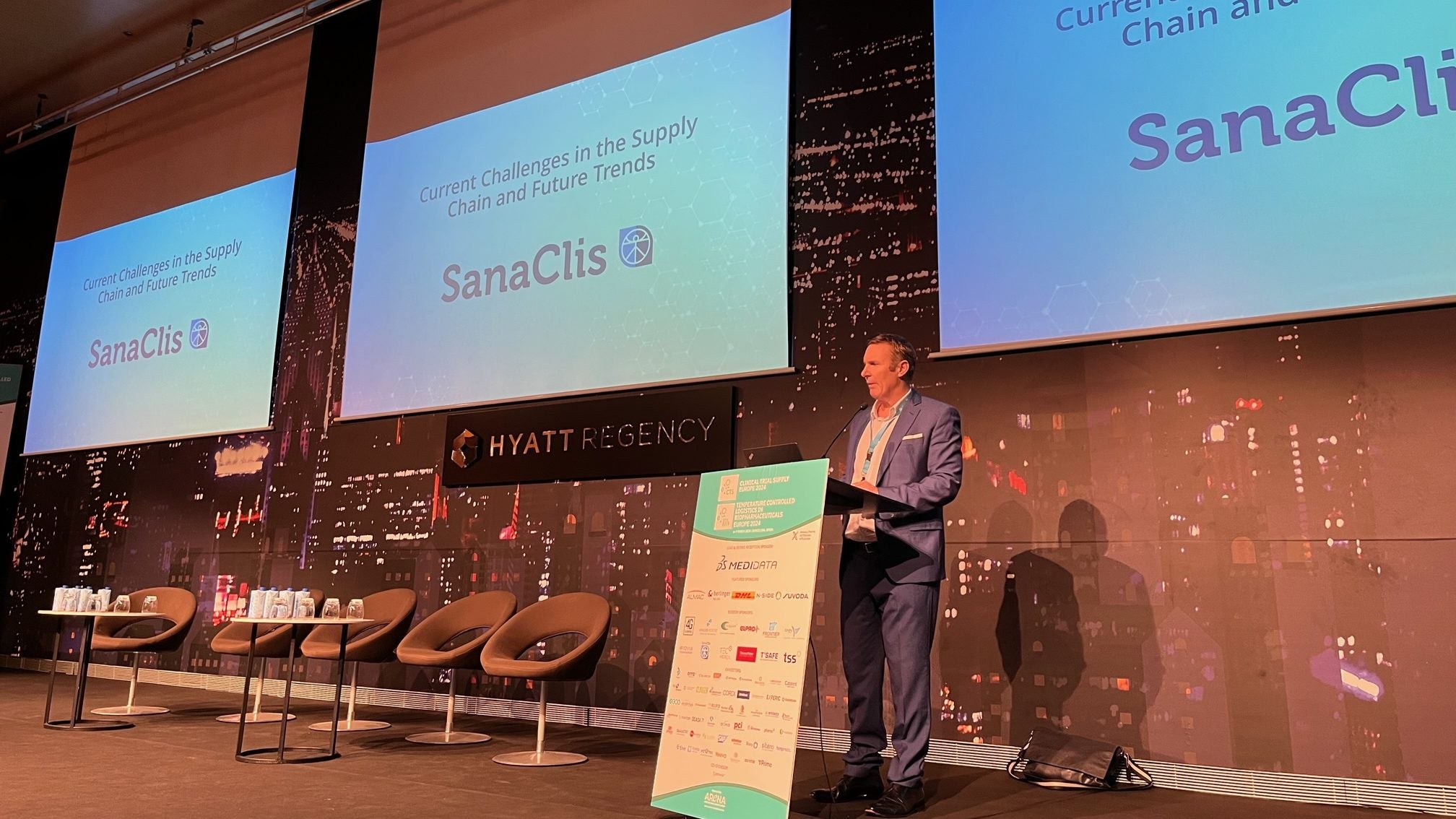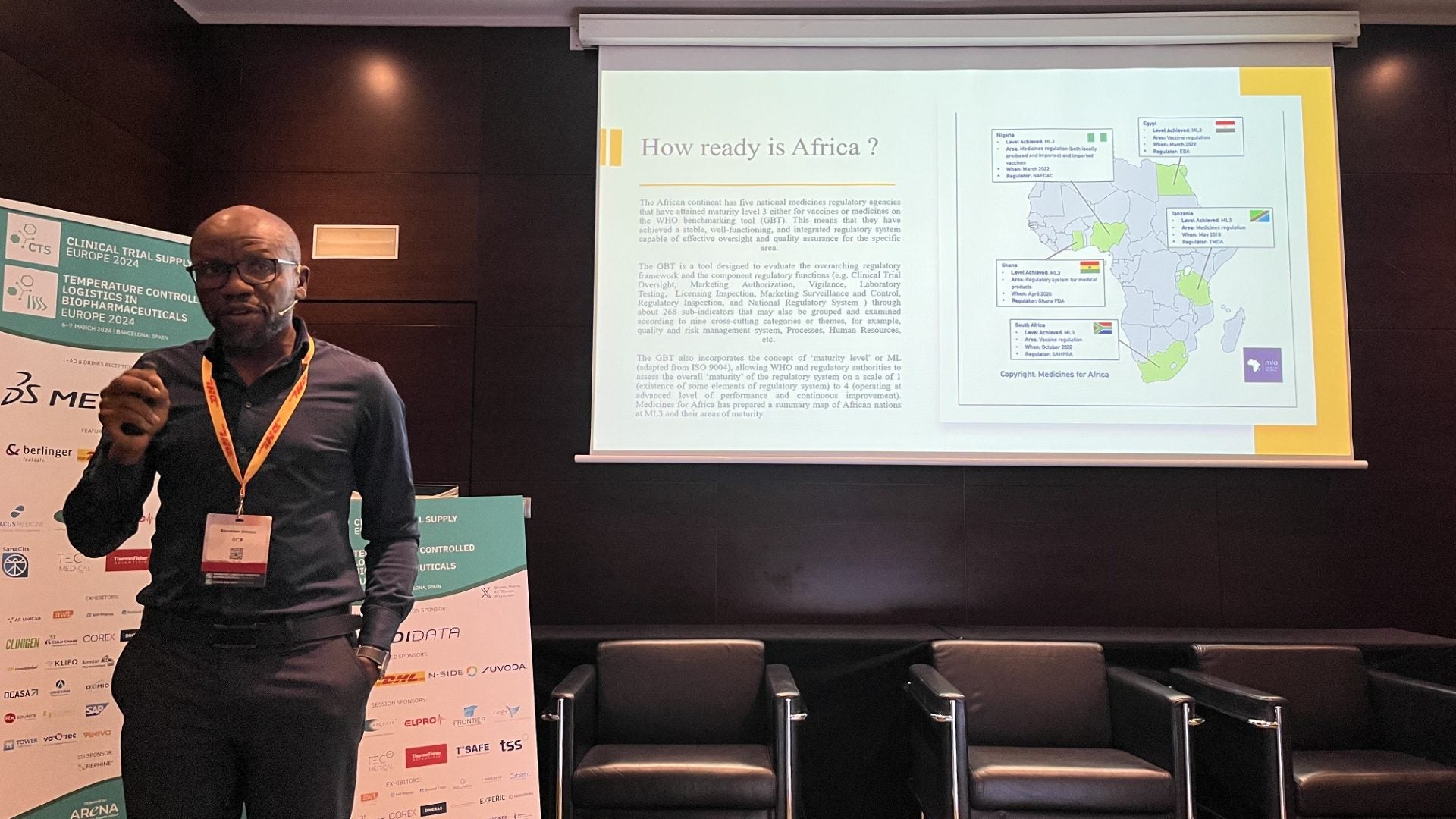
In the constantly evolving world of clinical trials and the pharmaceutical supply chain, overcoming emerging challenges was one of the main focus areas at this year’s Clinical Trial Supply (CTS) Europe 2024 conference.
The CTS Europe conference was held over two days (6 –7 March) in Barcelona, Spain, where pharmaceutical companies, biotechs, CROs and other players in this space, discussed and debated new technologies and processes aimed at streamlining supply chain operations.

Discover B2B Marketing That Performs
Combine business intelligence and editorial excellence to reach engaged professionals across 36 leading media platforms.
The two-day event hosted talks, panels, and roundtables, discussing topics such as sustainability, challenges, and future trends in the pharmaceutical and medical supply chain, and technologies such as artificial intelligence (AI) and blockchain.
Sustainability in the spotlight
The conference kicked off with a keynote focused on net zero, with Jürgen Wieland, global drug development environmental sustainability lead at Novartis, saying that continuing with business as usual is “not an option”.
Wieland highlighted the importance of a centralised approach to reduce clinical trial costs, including supply chain and shipment-related activities, which can account for 33% of total costs, to make clinical trials ‘greener’. This is in addition to decentralising some elements, such as travel reduction and introducing virtual visits, to improve efficiency and reduce costs.

At the end of the session, Wieland emphasised the importance of sustainability in 2024 and onwards: “I think for all the COOs who are willing to stay relevant in the business in the next five to ten years, it’s probably good advice to engage in strategies to reduce the environmental impact.”

US Tariffs are shifting - will you react or anticipate?
Don’t let policy changes catch you off guard. Stay proactive with real-time data and expert analysis.
By GlobalDataFuture trends in the supply chain
In a session led by global depot network director at the CRO SanaClis, Allan Van Konynenburg, the current challenges in the supply chain and future trends were discussed. The year 2023 was characterised by a growth in AI applications, with ChatGPT being pushed into the mainstream. Separately, external events also negatively impacted the sector: “If you look at [the] market, there’s been fluctuations in raw materials, energy, and labour costs,” he said.
Some of the challenges in the clinical trial supply chain include rising research and development costs, a growing need to ensure data security in the age of cyber threats, cold chain management, and the constant need to prepare for future disruptions.

Additionally, Van Konynenburg highlighted other trends that are here to stay such as blockchain, sustainability, and technology.
Looking ahead to the rest of 2024, Van Konynenburg said geopolitical tensions and upcoming elections that can have an impact on the industry mean “that we continue to live in uncertain times”.
Changing the clinical trial landscape
The importance of diversity in clinical trials was emphasised “for scientific, moral, and medical reasons” in a session led by Révérien Uwacu, a clinical trial supply management consultant for the pharma company UCB.
Révérien’s session highlighted how Africa has the potential to become a favoured spot for clinical trials.
He detailed how increased regulatory support and interest in local research sites can increase the potential of clinical trials on the continent: “Africa is an untapped market. It’s a potential target for global health – so this makes Africa strategically very important,” he said.
Building local partnerships, understanding regional regulations, and adopting technologies for supply chain transparency are all vital for Africa to become a clinical trial superpower.
Clinical trials expert, Oximio, is one company that has built a coalition of experts in the regulatory and logistics domains across Africa. Chief commercial officer at Oximio Zayheda Khan said, “Recent times have seen Africa gaining recognition as a key contender in the clinical trials arena.”

It’s not only Africa that is seeing an increased interest for clinical trials. While discussing the challenges associated with the scale up and production of cell and gene therapies, Van Konynenburg said that more pharma companies are moving into China: “There has been a recent surge in the number of clinical trials in China, backed by clinical spending and reforms as well.”
Technology is here to stay
It is clear that technology as a trend is here to stay in the clinical trial supply chain, with one of the most often adopted technologies being AI. Generative AI has the potential to be used in all aspects of the industry: drug development, research, sales, production, and even clinical trials. “This is an industry that should thrive on AI,” said Josep Bori, research director at GlobalData.
Many businesses are already implementing the technology into daily procedures and workflow. Technologies such as AlphaFold, a protein structure prediction model, have been used to predict the structure of the SARS-CoV-2 spike protein that the virus uses to enter cells.

Bori explained that although there is a place for AI in businesses, it’s still too early to use it in its current form in some areas: “If you misallocate a trial candidate to the wrong trial, or you give a misdiagnosis in a medical setting, that is devastating, there is no tolerance for that,” he says.





